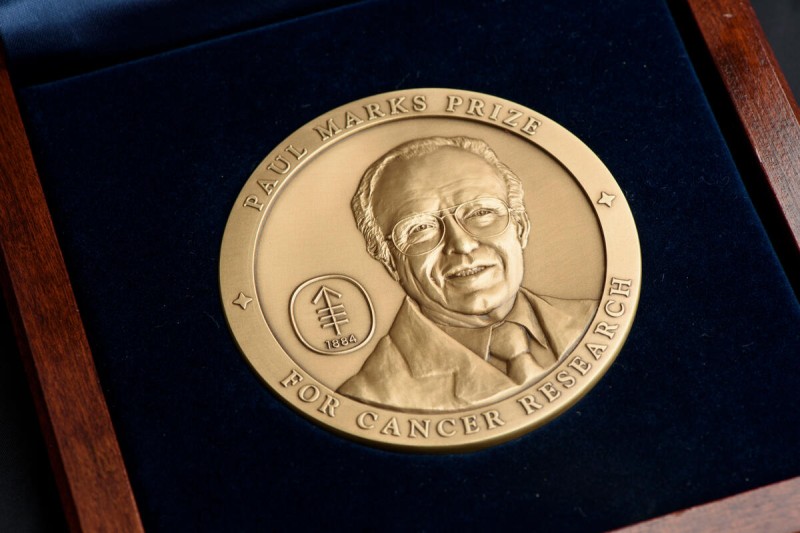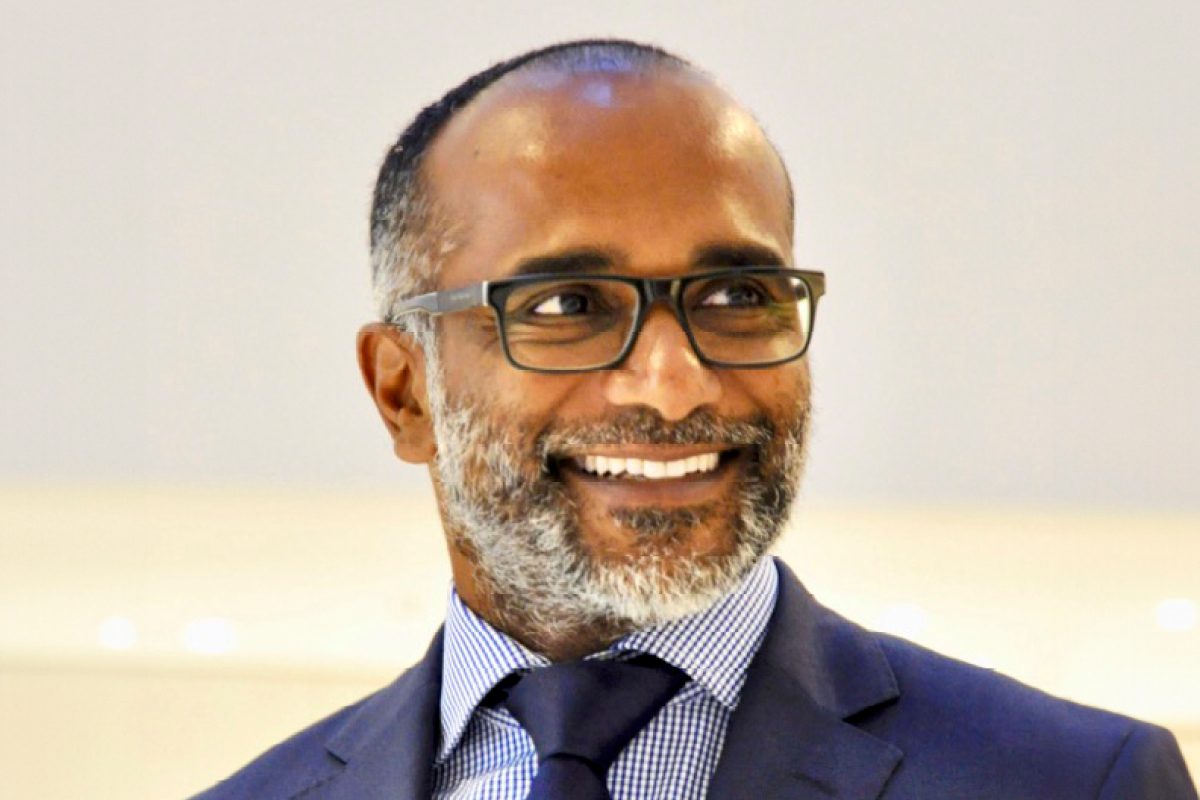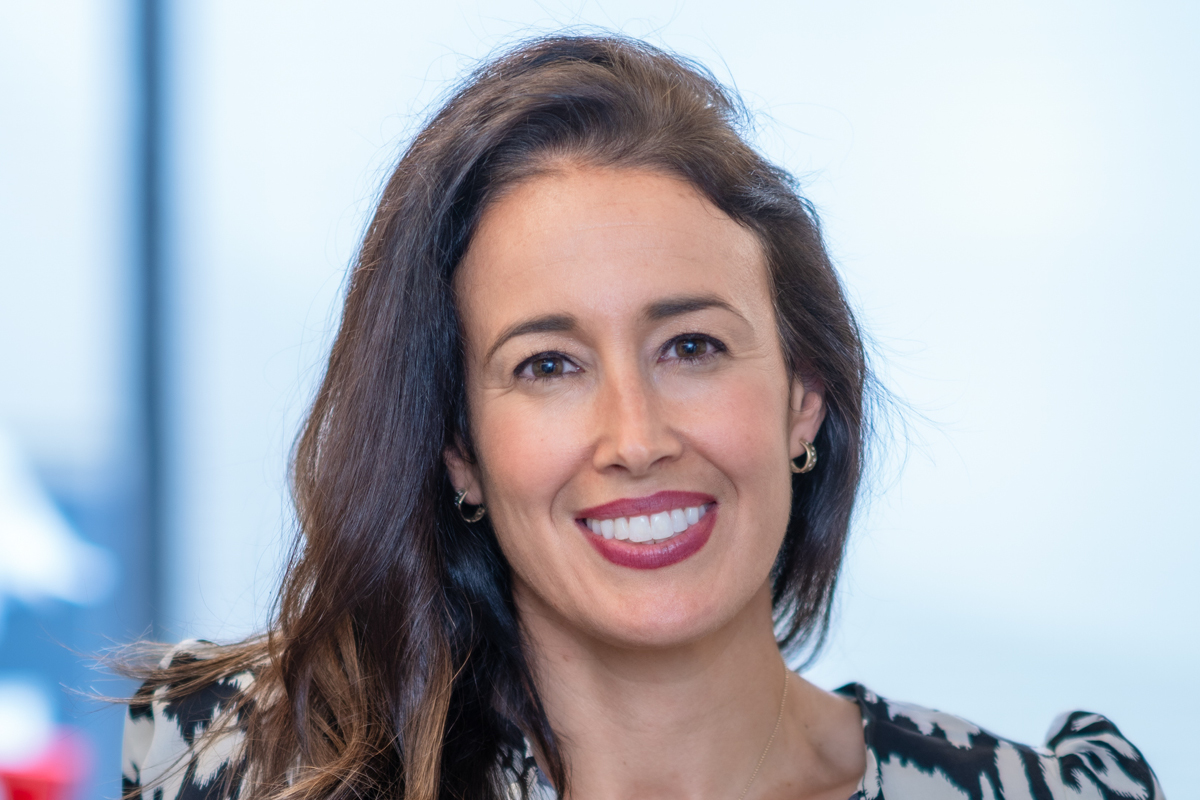
The Paul Marks Prize was named in honor of Dr. Marks, who led MSK for 19 years as President and CEO.
The three recipients of the 2023 Paul Marks Prize for Cancer Research will present their research at a symposium to be held March 26, 2024. The prize was named in honor of the late Paul A. Marks, MD, President Emeritus of Memorial Sloan Kettering Cancer Center (MSK). It recognizes early and mid-career leaders in cancer research who are making significant contributions to the understanding of cancer or are improving the treatment of the disease through basic or clinical research.
The winners of the 2023 Paul Marks Prize are Mark Agnel Frederick Dawson, MBBS, PhD, of the Peter MacCallum Cancer Centre in Victoria, Australia; Cigall Kadoch, PhD, of Harvard Medical School and the Dana-Farber Cancer Institute; and Michelle Monje, MD, PhD, of the Stanford University School of Medicine.
“The MSK community is honored to present the Paul Marks Prize to these three outstanding investigators, all of whom have already made differences in the lives of people with cancer — and we know they will continue to pursue answers to challenging scientific questions in the future,” said Selwyn M. Vickers, MD, FACS, MSK’s President and CEO, when the winners were announced. “Supporting the next generation of cancer scientists is part of our mission of ending cancer for life and a fitting tribute to the legacy of our esteemed colleague Dr. Marks.”
A committee of prominent members of the cancer research community — chaired by National Cancer Institute Director W. Kimryn Rathmell, MD, PhD, MMHC — selected the winners.
Since it was first presented in 2001, the biennial prize has recognized 37 promising scientists and has awarded $1.8 million. Previous Marks Prize recipients have later gone on to win other major awards, including the Nobel Prize and the Lasker Award.
Mark Agnel Frederick Dawson

Mark Agnel Frederick Dawson
Dr. Dawson is a professor at the Peter MacCallum Cancer Centre in Victoria, Australia; the Sir Edward Dunlop Research Fellow for Cancer Council Victoria; an Australian National Health and Medical Research Council investigator; and a former Howard Hughes Medical Institute (HHMI) International Research Scholar.
He is a physician-scientist whose work bridges basic, translational, and clinical research. His investigations have led to the development of several novel cancer drugs that are now being studied in clinical trials. His research focuses on a class of drugs called epigenetic inhibitors, which affect how genes get transcribed and eventually make cancer-causing proteins.
“The original promise of personalized medicine was to annotate all the gene mutations present in cancer and then build drugs to target those mutations. But we now know it’s not that simple,” he says. “We want to understand the vulnerabilities in cancer cells that go beyond genetics but that we might still be able to target. These include how cancer cells organize themselves, how they interact with the cells around them, and how they use their environment.”
Epigenetic inhibitors work by changing the networks that enable cancer-causing genes to become activated. They have shown promise in treating some cancers, including acute myeloid leukemia, but most tumors eventually become resistant to these drugs and begin growing again. “The big challenge for my lab over the next decade is understanding the interactions between the genome and the nongenetic features of cancer cells,” Dr. Dawson says. “We hope that by studying this down to the level of single cells, we will be able to build better treatments that can be combined with the ones that we’ve already developed.”
Dr. Dawson earned his MBBS degree from the University of Melbourne and his PhD degree from the University of Cambridge. He is the first Australian to win the Paul Marks Prize.
Cigall Kadoch

Cigall Kadoch
Dr. Kadoch is an associate professor of pediatric oncology at the Dana-Farber Cancer Institute and the Harvard Medical School, and an HHMI investigator.
She is internationally recognized for her research centered on unraveling the mechanisms of large, highly intricate nuclear protein machines called BAF chromatin remodeling complexes. These complexes play critical roles in mediating the architecture of our genomes — specifically, the mixture of DNA and proteins in the nucleus known as chromatin. Her research has uncovered how these complexes are biochemically put together, how they look structurally, and how they function to control which parts of the genome are open and accessible, and hence which genes are expressed.
“We have invested deeply in trying to understand these multicomponent molecular machines — from their composition and how they work in the nucleus to enable proper gene expression to their roles in cancer,” she says. “The motivation for this basic work is rooted in human genetics: Studies have shown that BAF complexes are the most frequently mutated entities in cancer, second only to TP53. And further, their functions are commissioned to an outsized degree in tumor growth and maintenance, making these complexes top therapeutic targets in the oncology industry.”
Dr. Kadoch’s research and several pioneering discoveries began with a focus on rare pediatric cancers caused by defects in these complexes.
“The majority of these childhood cancers are highly aggressive and intractable. The devastating clinical outcomes and lack of therapeutics motivate our priorities and our work at large,” she says. “Focusing our attention on cancer types that are genomically well defined and caused by lesions in these chromatin remodeling complexes, we have learned the biologic ‘rules’ governing the function of these molecular machines in cells, allowing us to extend our findings to many common cancers and other human diseases.”
Dr. Kadoch’s early career discoveries have already led the development of new drugs, which are now being studied in clinical trials.
Dr. Kadoch, a West Coast native, earned her bachelor’s degree from the University of California, Berkeley, and her PhD from the Stanford University School of Medicine.
Michelle Monje

Michelle Monje
Dr. Monje is a professor of neurology and neurological sciences and a pediatric neuro-oncologist at the Stanford University School of Medicine, and an HHMI investigator.
She studies cancers of the brain, brainstem, and spinal cord, with an intense focus on diffuse intrinsic pontine glioma (DIPG), the leading cause of brain cancer-related death in children. Her research has sought to understand how these cancers originate and what drives them, with the goal of ultimately developing better therapies. Her research has uncovered a critical role for the nervous system itself in the initiation, growth, and progression of these tumors, including the role of neuronal activity-regulated growth factor secretion and the formation of functional synapses between neurons and cancer cells.
“In other words, we have found how gliomas integrate into the brain structures they invade, which is fundamental to the growth of these cancers,” she says. “Understanding this has highlighted potential new therapies, which are at various stages of clinical evaluation.”
In addition to her lab research, Dr. Monje has led early-phase clinical trials for children, adolescents, and young adults with DIPG and other gliomas. “During my medical training, I took care of a child with DIPG from the time of her diagnosis until her death months later,” she says. “I was horrified by how little we understood about this disease and how little we had to offer children facing this universally lethal brainstem tumor. Since then, I have sought to improve outcomes for these patients.”
Dr. Monje says that a “team science” approach is needed to advance new treatments. “Effective, curative therapy will require a combination of approaches,” she explains. “This includes overcoming the profoundly immune-suppressive environment of brain tumors, which will help us leverage effective immunotherapies.”
In addition to brain tumors, Dr. Monje studies the underlying biology of the chemotherapy-related side effect known as “chemo brain.” Her work has uncovered potential targets for relieving these effects and improving the lives of cancer survivors.
Dr. Monje earned her MD and PhD degrees from Stanford.
Paul Marks: A Leader in Cancer Research
Honoring the legacy of Dr. Marks — a distinguished scientist and leader who served as President of MSK for nearly two decades — the biennial Paul Marks Prize for Cancer Research recognizes early and mid-career investigators who have made significant contributions to increasing the understanding of cancer.
As President and Chief Executive Officer, Dr. Marks led MSK for 19 years, beginning in 1980. After stepping down from that role in 1999, he remained a vital part of MSK for many years as President Emeritus and Member of the Sloan Kettering Institute.
Dr. Marks’ research in cell biology and cancer genetics made major contributions toward a new approach to cancer treatment and prevention, through the development of new and more potent chemotherapy and chemoprevention agents. He also helped establish the highest standards for research and patient care at MSK and provided leadership in the national and international medical science community.